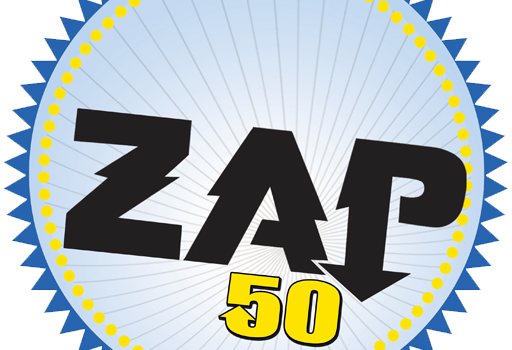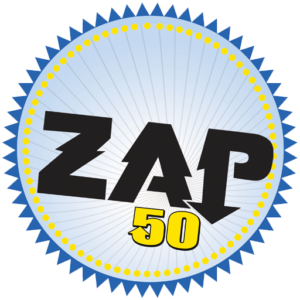The Blackstone River Commons: How you can help continue a 50-year legacy of stewardship this summer
Those who remember the water quality of the Blackstone River 50 years ago will recall the signature smell of the foamy, multi-colored water, filled with sewage, industrial contamination, and tons of trash. The Blackstone had been our dumping grounds for over a hundred years without stewardship or regulations to protect it. Today, we’ve made massive progress and it seems impossible to have such unacceptable conditions, but there are new challenges facing our watershed – and a new group ready to face the challenge.
10,000 Tons of Trash: ZAP the Blackstone
A group of river advocates led by the then-director of the Blackstone River Watershed Association David Rosser started organizing a comprehensive plan for cleaning up the Blackstone River in 1971. Rosser built a diverse coalition throughout the community and fortified it with political backing as well as support from the Providence Journal, Army Corp of Engineers, and others to launch a massive promotional campaign that recruited thousands of volunteers.
“Operation ZAP” was the largest hands-on environmental activation of citizens in the U.S. with 10,000 volunteers showing up on September 9, 1972, removing 10,000 tons of trash and debris – from cars and appliances to municipal trash and shopping carts. Scuba divers, bulldozers, school children, and local residents worked to clean up the river as well as create new parks along its shore to protect the floodplain. One highly-organized day helped create new stewards and watchdogs to oversee river conditions and help educate the masses on the importance of water and our connection to it.
The Next Generation of Stewardship Faces New Challenges
While some challenges remain the same as in 1972, such as trash and sewer contamination (now through combined sewer overflows and issues at wastewater treatment plants), new challenges have arisen – including increased flooding from climate change, prolonged and more severe droughts (the entire watershed is currently in a drought), aquatic invasive plants, and the need to expand equitable recreational access. However, the path forward is the same as our original ZAPsters had: collaboration, evaluation of the issues, a clear plan, and an unwavering commitment to the task. Luckily, we have a plan and we have a group ready to tackle it.
Today, there are over 100 organizations working together to improve the health of the Blackstone River and its 475-square-mile watershed. However, programs in this urban watershed have historically been underfunded with minimal coordination between them. In 2020, the Narragansett Bay Estuary Program recognized these challenges and decided to make a difference. Over two years, hundreds of stakeholders participated in the program, met with stakeholders, and listened to concerns to identify the top 20 areas of opportunity to improve watershed health, river access, and climate resilience. This study experiment was published as the Blackstone River Watershed Needs Assessment Report. This initiative established the Blackstone Watershed Collaborative, an umbrella organization hosted by Clark University, which brings together diverse partners to build capacity and implement the priority actions identified.
Blackstone Commons 2022: A 60-Mile Journey to Raise Awareness
To raise public awareness about the ongoing needs and opportunities to improve stewardship of the Blackstone as a “commons” available for current and future generations, the Collaborative is working with the Rhode Island School of Design, Friends of the Blackstone, Save the Bay, and other organizations to launch an expedition paddling the entire the Blackstone River. A core team of adventurous advocates will paddle 60 miles from Worcester, MA to Providence, RI from August 11-14, meeting with legislators, wastewater treatment plant operators, government agencies, and community groups to discuss the most pressing issues facing the Blackstone and how we can work together to address them.
The expedition will include several public events, including a kick-off on August 11 from Worcester’s own Blackstone Heritage Corridor Visitor Center, a free family-friendly RiverFest on August 12 at River Bend Farm in Uxbridge, MA, and a final public paddle and celebration hosted by Narragansett Brewery in Providence on August 14. To learn more about these events, check out blackstonecollaborative.org/commons.
Take Part in ZAP 50th this Summer
On August 27, 2022, we’re organizing ZAP50: over 200 clean-ups and “green ups” throughout the Blackstone River Valley, from Worcester to Pawtucket, RI. Organizers hope to match the energy and momentum of the original Project ZAP in its 50th-anniversary revival. Volunteers are still needed and we’re inviting families, individuals, community groups, businesses, schools, and others to organize a cleanup of a littered area or “green up” improvements such as invasive species removal, rain garden installations, or tree plantings. Sign up with your project idea or volunteers at zaptheblackstone.com, then join the public celebration of all our volunteers’ efforts on September 10 at Old Slater Mill in Pawtucket, RI, with arts, music, food, and more.
To learn more about the Blackstone Watershed Collaborative, check out www.blackstonecollaborative.org.






